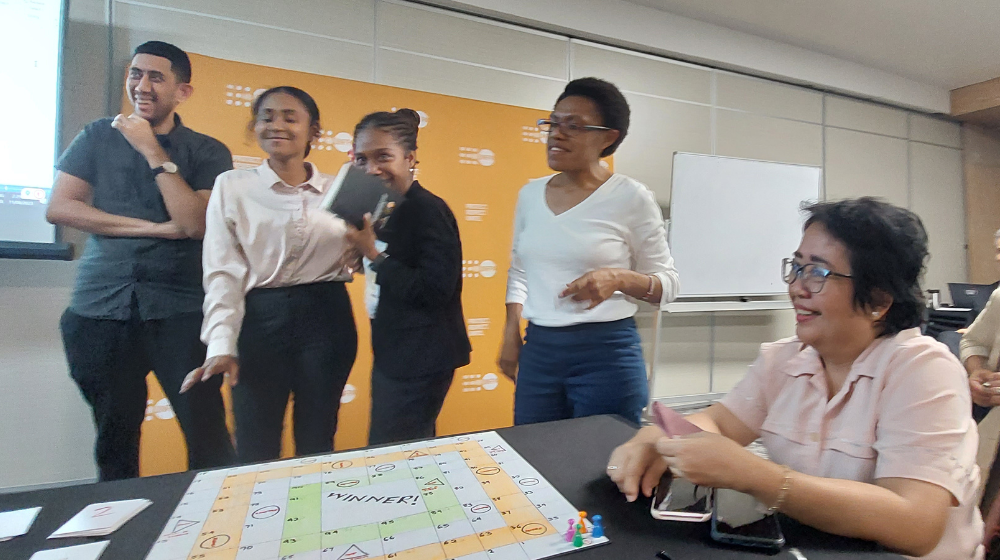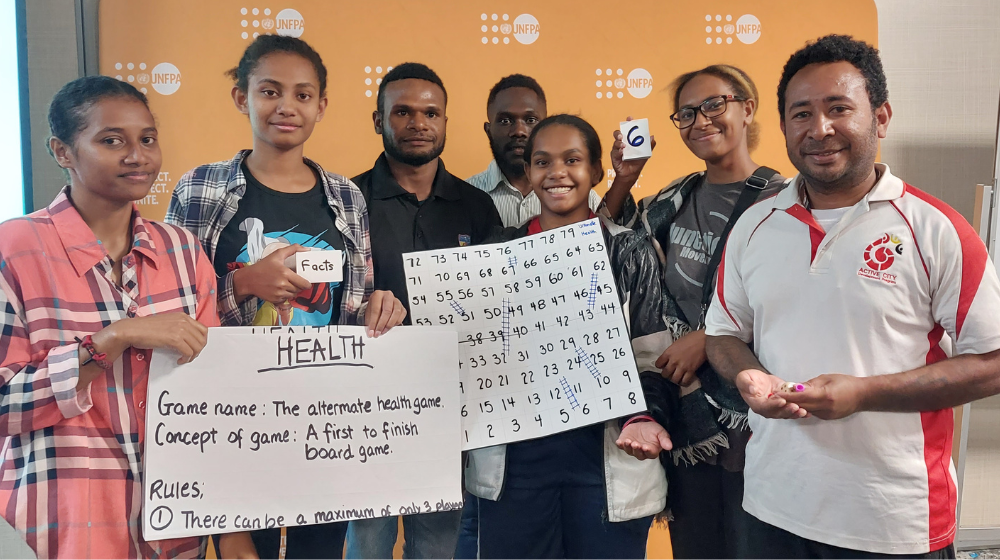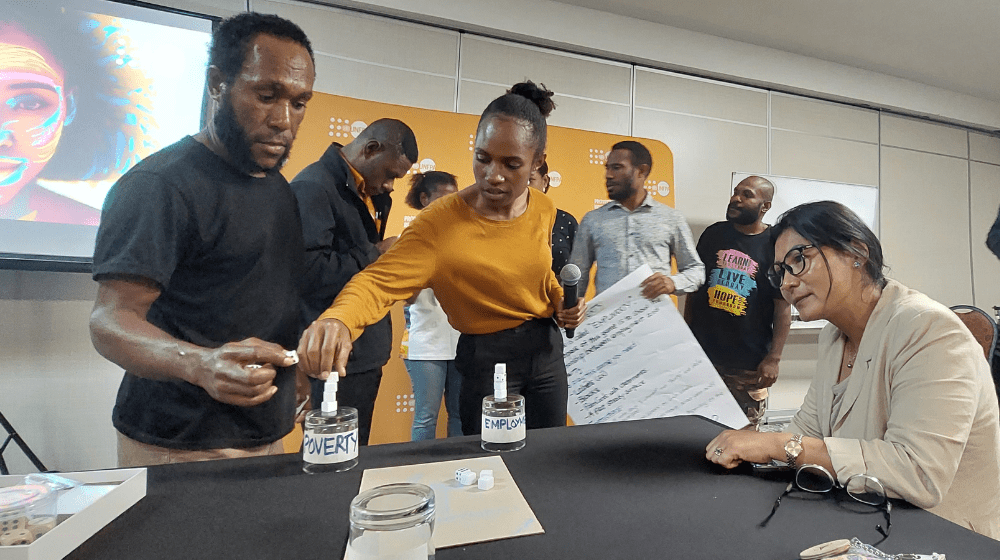Over 30 young people joined UNFPA and NSO’s Game Changers workshop ahead of International Youth Day 2023, collaborating to develop original board games on development issues facing Papua New Guinea.
The groups were tasked with developing interactive games that explore the importance of investment in health, education, employment, and inclusion in leveraging the economic opportunity of the youth bulge in PNG’s population. Each game had to be targeted to 18-24-year-olds and take around 15 minutes to play.

With 60% of the population under 25, equipping young people with the skills they need to navigate an increasingly interconnected world is critical to enabling them to fulfil their potential. UNFPA is committed to ensuring young people are not only a part of that skill-building process, but that they can lead development of education materials for their peers. Peer-led education means young people receive relevant information informed by current experience.
Strengthening Data Literacy Among Youth Leaders
The Game Changers workshop was part of NSO’s week-long data literacy workshop with young advocates from around the country. The workshop aims to improve utilization of data for planning and project implementation and help young people be aware of data privacy concerns and misinformation.
“I had a fair idea when it came to data literacy but felt that because I didn't use this skillset often, I forgot some of the fundamentals,” said Emstret Space’s Bryan Earles. “It was a good refresher to increase my knowledge.”
“The session on data storytelling was my favourite because we used all the skills - from researching to creating visuals - and now we create compelling data stories that create emotions,” shared Bryan. Communication is a key aspect in all areas and making sure you can communicate the data is an important skill to have.”

Participants shared that they most enjoyed the session on data visualisation as they learned how to use free tools to transform large datasets into effective graphics for communicating data.
“I really enjoyed the session on converting data visuals,” said Primrose Famane from The Family Health Association in East New Britain. “This really puts the numbers into perspective.”
Following this exercise, UNFPA and NSO will be conducting further data literacy activities with young people, including a second workshop in Lae, Morobe Province.
UNFPA and Population Data
UNFPA works in partnership with the National Statistical Office to deliver data literacy training for planners, youth, and other stakeholders across Papua New Guinea. This initiative aims to strengthen data appreciation in order to improve utilisation of up-to-date population data. This project is funded by the Australian Government.


